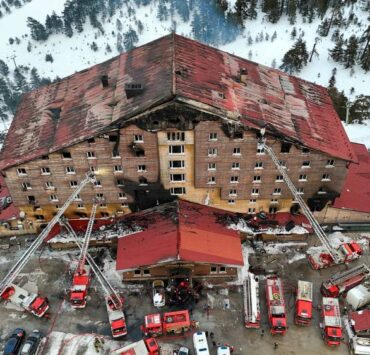Drug war inquiry: Probe the police

The Department of Justice (DOJ) announced in November 2024 that it created a special task force to investigate the occurrence of extrajudicial killings (EJKs) during the Duterte administration’s war on drugs. It also disclosed that it gave the task force 60 days to determine if cases will be filed against anyone found responsible for any EJK. The 60 days expired early this week. The families of 30,000 victims of the drug war are awaiting the DOJ’s findings.
If the Marcos administration is earnest in its announced probe, it would be easy to pinpoint where to start. It should start looking into the circumstances surrounding the deaths of more than 6,000 Filipinos at the hands of police officers. These are the incidents where the victims were shot to death by the police supposedly because they fought back (“nanlaban”) when they were about to be confronted or were being arrested in either buy-bust or “tokhang” operations. In all of these cases, the police invoked self-defense.
There are strict step-by-step rules that are required to be followed in any police drug operation, especially if it results in death. There are preliminary processes and documentations needed before each operation is allowed to start. There are officials whose presence is required as witnesses to the operations. There are evidence gathering and preservation protocols that are required when death happens. More importantly, police officers are obliged to submit themselves to an inquest by prosecutors when a suspect dies during police operations. This is clearly contained in the Philippine National Police manual of police operations, which provides as follows: “In cases of armed confrontation wherein the suspect dies, the Team Leader of the operating unit shall submit the incident for inquest before the duty Inquest Prosecutor prior to the removal of the body from the scene.”
By doing a checklist of compliance with all these requirements, DOJ investigators can identify if the deaths were attended by anomalies and irregularities that can debunk the nanlaban excuse. The DOJ should identify the police officers who were responsible for multiple deaths with the uniform excuse of self-defense. Such high incidents of deaths at the hands of a single police officer are a red flag for EJKs. These incidents are also strong pieces of evidence that can contribute to proving domestic crime against humanity. Both the DOJ and the House of Representatives quad committee should summon PNP records of cops who owned up to the killing of multiple victims in the guise of self-defense.
During its term, the Duterte administration refused requests for access to these nanlaban records made by the Commission on Human Rights and the Integrated Bar of the Philippines. The PNP even repeatedly rebuffed the strongly worded orders of the Supreme Court to produce police records of drug war victims. When the PNP was left with no other recourse but to comply with the high court’s order, it submitted certain drug operations records mishmashed with a mountain of trash of non-drug related incidents.
The police nanlaban records is the closet of skeletons of EJK victims. The DOJ and quad comm should pry this closet open. When the names of cops involved are revealed and they are confronted with multiple questionable deaths attributed to them—faced with the specter of multiple life imprisonment sentences—they will potentially turn state witnesses by pointing to higher-ups who ordered the perpetration of crime against humanity.
During any criminal trial against the police officers who invoke self-defense, the burden of proving the lawful nature of the deaths they caused shifts to them. A reverse trial will happen with the accused police officers required to present factual evidence proving that the deceased indeed attacked them first and that they only fired in self-defense. In other words, it will not be for the victims’ families to prove that the police committed crimes. It will be up to the police officers to prove that they did not commit any crime. The police officers cannot invoke a “presumption of regularity” in these situations because death is not supposed to be a regular consequence of police operations. The mandate of the police is to arrest suspects and not to kill them. If they resort to the extreme measure of putting an end to precious life, the burden is on them to prove that their resort to deadly force was justified.
The DOJ should stop putting the burden of initiating criminal investigations on the shoulders of victims’ families. The DOJ will betray insincerity if it puts such a burden on families. All that victims’ family members can testify on will mostly be on the civil damages that they suffered because of the summary killing of their breadwinners. All the evidence proving the crimes is in the closet of the national police organization.
It’s time for the DOJ to stop investigating the victims’ families and start probing the police.
—————-
Comments to fleamarketofideas@gmail.com


















